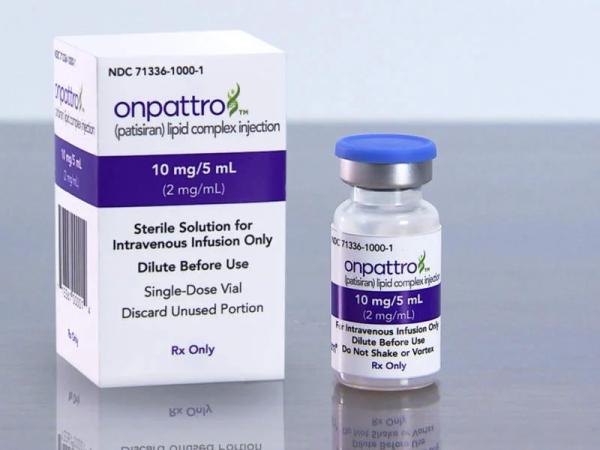Patisiran Disease Interactions
There are 3 disease interactions with patisiran.
Patisiran (applies to patisiran) hepatic impairment
Moderate Potential Hazard, Moderate plausibility. Applicable conditions: Liver Disease
Patisiran has not been studied in patients with moderate or severe hepatic impairment, therefore, caution is advised if used in these patients. No dose adjustment is necessary in patients with mild hepatic impairment (bilirubin =1 × ULN and AST >1 × ULN, or bilirubin >1.0 to 1.5 × ULN).
Patisiran (applies to patisiran) severe renal impairment
Moderate Potential Hazard, Moderate plausibility. Applicable conditions: Renal Dysfunction
Patisiran has not been studied in patients with severe renal impairment or end-stage renal disease, therefore, caution is advised if used in these patients. No dose adjustment is necessary in patients with mild or moderate renal impairment (estimated glomerular filtration rate [eGFR] =30 to <90 mL/min/1.73m2).
Patisiran (applies to patisiran) vitamin A deficiency
Moderate Potential Hazard, Moderate plausibility.
Treatment with patisiran leads to a decrease in serum vitamin A levels. Supplementation at the recommended daily allowance of vitamin A is advised for patients receiving treatment. Caution and monitoring is advised in patients with vitamin A deficiency. Patients should be referred to an ophthalmologist if they develop ocular symptoms suggestive of vitamin A deficiency (e.g., night blindness).
Switch to professional interaction data
More about patisiran
- patisiran consumer information
- Compare alternatives
- Side effects
- Dosage information
- During pregnancy
- Drug class: miscellaneous metabolic agents
- En español
Related treatment guides
Drug Interaction Classification
| Highly clinically significant. Avoid combinations; the risk of the interaction outweighs the benefit. | |
| Moderately clinically significant. Usually avoid combinations; use it only under special circumstances. | |
| Minimally clinically significant. Minimize risk; assess risk and consider an alternative drug, take steps to circumvent the interaction risk and/or institute a monitoring plan. | |
| No interaction information available. |
See also:
Further information
Always consult your healthcare provider to ensure the information displayed on this page applies to your personal circumstances.


